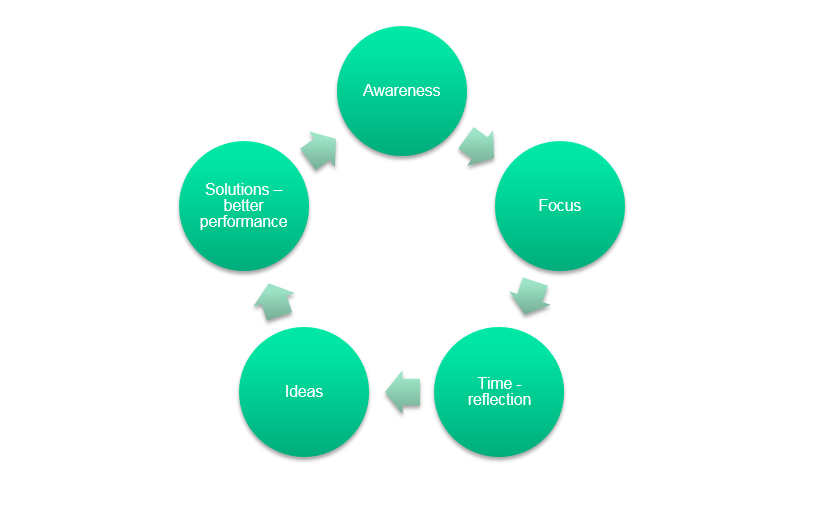Alumni story / Building a coaching culture
What is coaching? How can a simple conversation help me?
The answers are much simpler than you might think.
There are no fancy tools or gadgets to bring as a coach, the only thing the coach has is themselves and how they use their personal style, personality and range of experience to help a client.
Coaching is defined by Peter Bluckert as “The facilitation of learning and development with the purpose of improving performance and enhancing effective action, goal achievement, personal satisfaction and fulfillment of potential.”
There is so much negativity around these days that I adopted the view early on that what’s important is not just to provide coaching, but to offer coaching that would inspire and really motivate colleagues in what is possibly the toughest time in the NHS history. This brings pressure, difficult decisions, difficult conversations, it challenges relationships and can lead to poor behaviours.
Coaching is a powerful antidote.
My experience of coaching is incredibly positive. I’ve been truly amazed by the response from those who use it about the benefits it offers “Working as a busy manager in the NHS it's hard to find time to stop and reflect on my own practice,” a coachee from Walton Centre who is now training to be a coach said. “Coaching has given me the opportunity and permission to do just that. As a result I feel I have developed more awareness of behaviours that were limiting my performance and also could be limiting the development of my team.”
What are the benefits?
Achieve your potential!
There aren’t necessarily any metrics that show coaching provides a return on investment. But, the experience at the Walton Centre shows that coaching, as part of a systematic programme of workforce initiatives does deliver results.
The Walton Centre began its commitment to coaching three years ago. In this time we have delivered:
- Investors in People Gold status, one of a handful of organisations in the UK to achieve this.
- Several national awards, including Health Service Journal top 10 places to work & HFMA Havelock training award.
- We are currently in the top five specialist trusts in respect of staff saying they would recommend our services to friends and family.
- We are one of a very small number of NHS hospitals to be rated “Outstanding” by the CQC in 2016.
- We are one of only 12 NHS organisations that has been chosen nationally by Simon Stevens to lead as an exemplar on staff health and wellbeing.
- We are an acute care vanguard site.
Coaching promotes creative thinking and gives time to reflect on one’s sphere of influence and control so focusing efforts towards areas where this is strongest and letting go of those areas where this is less so.
What gets in the way?
Pressures on resources, feeling that things are unachievable, lack of time.
If things are changing maybe it’s an opportunity to change some stuff that you’ve thought for a long time needed to change?
Pressure on NHS staff means it’s more important than ever that we find downtime outside work, and coaching can help focus on what we needs to maintain resilience and work-life balance.
“Coaching gives me the time and the space to untangle everything that is going around in my head. I come away from a session more focused, energised and able to manage my personal and professional life balance,” a Walton Centre coachee said.
How did we embed a coaching culture at the Walton Centre?
Our philosophy has been to harness the potential of our fabulous staff and provide time and support for the ideas and abilities that they have to emerge and to be put to full use.
Time for reflection is key to this and is something that should be considered essential for all professions.

It’s difficult for everyone, as work and home lives become busier, but reflective practice can be carried out anywhere and anytime, it’s just needs to be developed (like using a muscle). The benefits are huge.
How can you do the same?
Working with a coach, adopting a coaching style, and building in time for reflection in my view is essential for all senior finance staff in the NHS.
There is a great deal on offer such as HFMA’s executive coaching service for finance leaders or contact us at The Walton Centre to find out more about how an organisation can develop a coaching culture.
What could coaching do for you?
Related content
The value masterclass shares examples of organisations and systems that have pursued a value-driven approach and the results they have achieved.
This webinar series offers colleagues of ICS organisations the opportunity to discuss common priorities, challenges, and successes within their field.